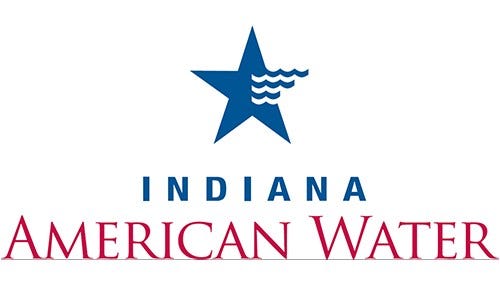Utility Companies Offer Safety Tips for Cold Weather

With much colder weather in the forecast, Indiana American Water and CenterPoint Energy are urging customers to act now to secure homes and businesses against freezing pipes.
“With much colder temperatures in the forecast, we are encouraging customers to act now to protect their plumbing system against the extreme cold,” said Indiana American Water President Matt Prine.
“Failing to protect your plumbing from cold temperatures can be disruptive and very costly. When ice expands inside pipes, it creates tremendous pressure that can crack and burst them, leaving homeowners with a costly plumbing bill, and thousands of dollars in water damage.”
Luckily, these problems are preventable by evaluating areas of vulnerability and taking certain precautions. Indiana American Water offered the following winterization tips:
- Search your house for uninsulated pipes, especially in unheated areas. Consider wrapping pipes with foam insulation or electric heating tape but follow manufacturer’s instructions carefully to avoid a fire hazard.
- Check to make sure your garage door and crawl space doors/vents are closed.
- Leave cabinet doors open in kitchen and bathroom areas to allow warm air to circulate and consider letting a faucet drip to keep water moving through the pipes. If you have young children, relocate any chemicals of cleaners that may have otherwise been out of reach behind the cabinet doors.
- Seal cracks and holes in outside walls and foundations with caulking, especially where cables or phone lines enter the house, to keep cold air away from pipes.
- Make certain the water to your hose bibs is shut off inside your house (via a turnoff valve), the lines are drained, and the hose is disconnected from the spigot.
- Drain and shut off entirely the water to any unoccupied residence such as a summer or vacation home. A loss of power during a winter storm could cause pipes to freeze. If you intend to leave a property entirely without heat, be sure to drain all water to prevent the possibility of frozen pipes.
- Set the thermostat at no lower than 55 degrees if you’re going out of town. Although you may be able to get away with a lower temperature, this setting is generally considered to be safe for pipes.
- Make sure you know where your main water shut-off valve is in case you need to shut your water off in an emergency.
- Consider wrapping your water heater in an insulation blanket. While not really at danger for freezing, this can lower your heating bills.

Indiana American Water is also encouraging customers to keep fire hydrants clear near their homes and businesses when snowfall accumulates. This small step can save precious time if firefighters need to access it in an emergency. Remove snow and ice within a 3-foot perimeter of the hydrant and shovel a pathway from the hydrant to the street so that firefighters can access it quickly.
Additional information on preventing frozen pipes is available on online at amwater.com/inaw/Water-Wastewater-Information/wise-water-use.
Meanwhile, CenterPoint Energy is encouraging customers to have an emergency plan, particularly if they depend on natural gas to heat their homes. The company offered these safety tips to help customers prepare as soon as possible:
Natural gas:
- Make sure your heating system is working properly. Malfunctioning home heating equipment can cause a fire or carbon monoxide poisoning. Check that outside furnace vents aren’t blocked by snow or ice. Keep your furnace filter clean for safe, efficient operation.
- Use space heaters safely. Use a space heater with an automatic shut-off feature, and keep children, pets and all items at least three feet away. A space heater that uses gas, propane or wood should be vented to the outside. Stoves and ovens should never be used for space heating.
- Check your carbon monoxide (CO) and smoke alarms. These devices are essential to warn you of a fire or dangerous condition involving a furnace, water heater, fireplace or stove. Test your alarms monthly and change batteries as recommended by the manufacturer.
- Immediately report a suspected natural gas leak. If you smell the “rotten egg” odor of natural gas, immediately leave on foot, go to a safe location and call both 911 and CenterPoint Energy at 800-227-1376. Don’t use electric switches/outlets, phones (including cell phones), drive or start a car inside or in close proximity to the location or do anything that could cause a spark.
Furnace: A furnace is the largest natural gas consuming appliance.
- Set your thermostat no higher than 68 degrees. If possible, set it at 65 degrees when you are home and 60 degrees when you are away from home.
- Lowering your thermostat can help you save on your annual heating costs. Installing a programmable thermostat can help you automatically control your heat usage. Add on extra layers of clothing to keep warm.
- Change your air filters monthly. A dirty filter restricts airflow and can increase the operating cost of your furnace by as much as 10 percent. A good reminder is to change the filter each time you receive your natural gas bill.
Other appliances: Although they consume less natural gas, you can still maximize their efficiency.
- Run your washing machine, dishwasher and gas dryer only with full loads.
Make your home more airtight and keep cold air outside:
- Seal leaks around doors, windows, and other openings such as pipes or ducts, with caulk or weather-stripping. The most common places where air escapes in homes are floors, walls, ceilings, ducts, fireplaces, plumbing penetrations, doors, windows, fans, vents and electrical outlets.
- If it has been a while, consider adding more insulation in your attic.
- On sunny days, open draperies and blinds to let the sun’s warmth in. Close them at night to insulate against the cold air outside.
Visit CenterPointEnergy.com for natural gas safety tips and other resources.
